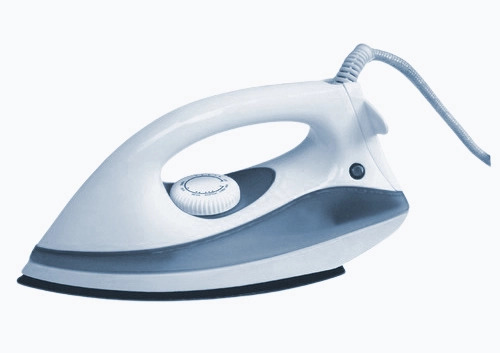Tel: 0129-4001010 Phone: +91 730 321 5033
Email: cs@absoluteveritas.com
BIS CERTIFICATION FOR ELECTRIC IRON IS 302 (PART 2/SEC 3):2007
In today's competitive landscape, maintaining market presence without a certified, high-quality product can be challenging. Obtaining a BIS license may also be essential for selling products in the Indian market. To achieve BIS certification and ensure product quality, manufacturers must adhere to the specified Indian standards.
Let's delve deeper into IS 302 (Part 2/Sec 3):2007 for electric iron.
IS 302 (Part 2/Sec 3) covers electric iron. The Bureau of Indian Standards adopted this Indian Standard (Part 2/Sec 3) (First Revision) after the Electrotechnical Division Council approved the draft finalized by the Electrical Appliances Sectional Committee. This standard specifies the electric iron's safety requirements.
This standard outlines safety requirements for electric dry irons and steam irons intended for domestic and similar use, including models with a separate water reservoir or boiler capacity of up to 5 liters and rated voltages not exceeding 250 V.
This standard is relevant to appliances designed for uses beyond typical household settings but still carry potential risks to the general public, including those utilized by laymen in shops, light industries, and agricultural environments.
IS 302-2-3:2007 addresses the safety aspects of the following primary categories of electric irons:
-
Dry Iron - Cordless
-
Dry Iron - With Cord
-
Vented Steam Iron - Cordless
-
Vented Steam Iron - With Cord
-
Pressurized Steam Iron - Cordless
-
Pressurized Steam Iron - With Cord
-
Instantaneous Steam Iron - Cordless
-
Instantaneous Steam Iron - With Cord
TESTS
The specified tests must be conducted for electric iron..
-
Earth Continuity test
-
Electric strength test
-
Functional test
-
Protection against access to live parts
-
Power input and current
-
Leakage current and electric strength at operating temperature
-
Provision for earthing and so on
The following classification shall be taken into account for GoL/CSoL:
-
Group I - up to and including 1000 W
-
Group II above 1000 W
Labelling and marking must adhere to the specifications outlined in IS 302 (Part 2/Sec 3):2007. Additionally, the product must comply with the standard's requirements, and the Standard Mark (ISI Mark) may be affixed to the product. Manufacturers are required to obtain a BIS license from the Bureau of Indian Standards to use the standard mark (ISI Mark). This license is granted following a thorough evaluation of the manufacturer's manufacturing infrastructure, production processes, and quality control and testing capabilities during an on-site visit to the manufacturing premises by the Bureau.
PROCESS FOR BIS ISI MARK CERTIFICATION

BIS CERTIFICATION PROCESS
Acquiring a BIS license requires a comprehensive review of manufacturing infrastructure, quality control abilities, testing resources, and production procedures. This thorough assessment guarantees that products not only adhere to regulations but also prioritize consumer safety and reliability.
NOTE:
For comprehensive guidance on the BIS ISI Certification process, please explore:
WHY USE ABSOLUTE VERITAS?
Absolute Veritas is a prominent organisation from the private sector of India primarily dealing with the Inspection, Testing, Audits, Certification of products& consulting services to various industries in India and worldwide, ensuring compliance with regulatory standards and industry requirements. Offering a comprehensive range of services including product certification, testing, training, auditing, and compliance services, Absolute Veritas helps manufacturers and importers achieve higher production efficiency and quality standards.
Absolute Veritas (BIS Consultant) will handle end to end pre-registration request, sample preparation, documentation, testing and application process for FMCS Certification
For any questions regarding the most recent update on FMCS registration licenses, please reach out to us via email at cs@absoluteveritas.com



